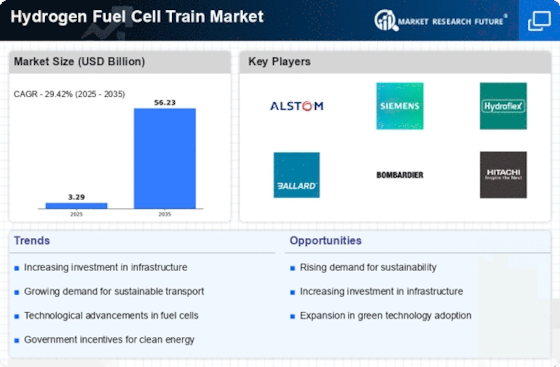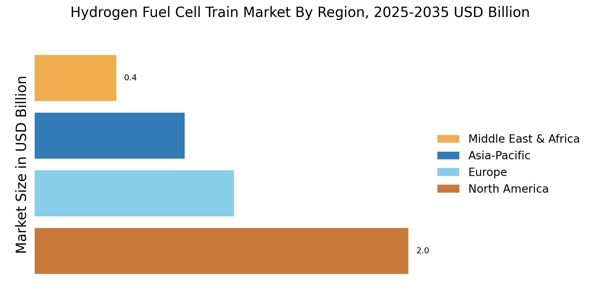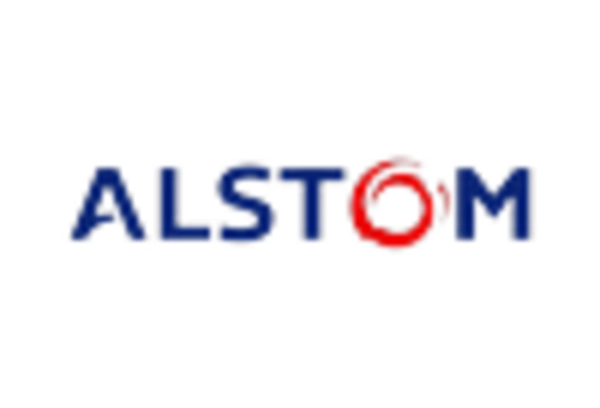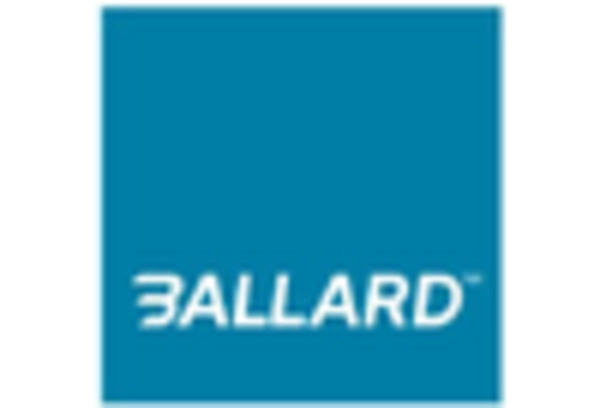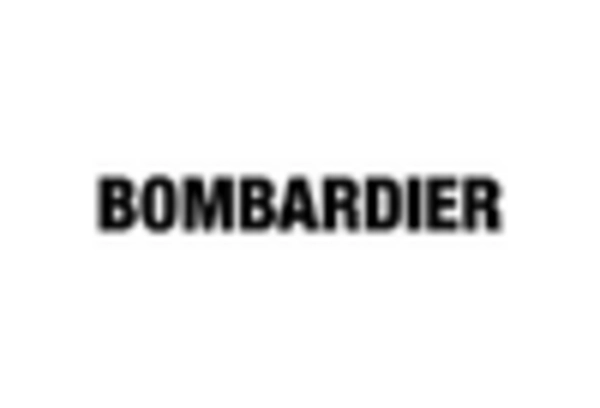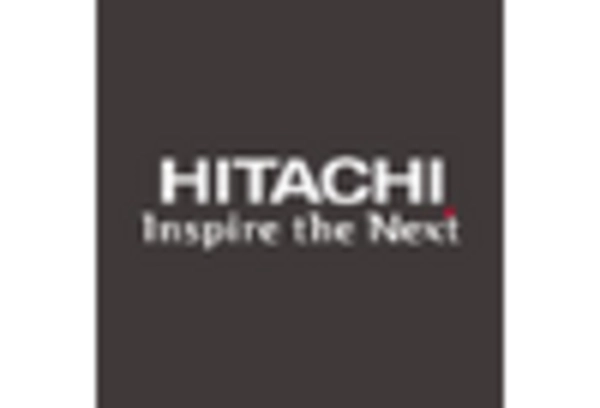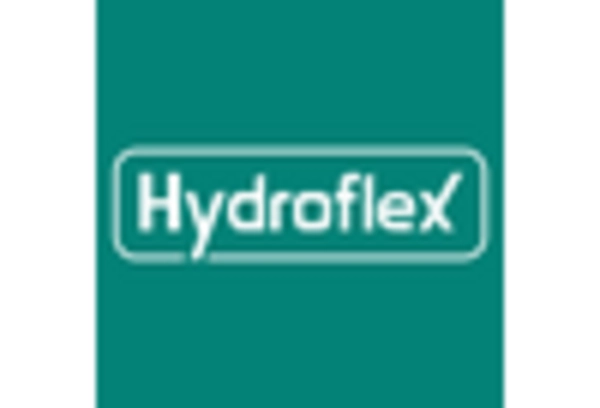Technological Innovations
Technological advancements are a key driver of the Hydrogen Fuel Cell Train Market. Innovations in fuel cell technology, such as improved efficiency and reduced costs, are making hydrogen trains more viable. In 2025, the market is witnessing breakthroughs in hydrogen storage and fuel cell design, which enhance the performance and range of these trains. For example, advancements in lightweight materials and energy management systems are contributing to better energy efficiency. The integration of digital technologies, such as predictive maintenance and real-time monitoring, is also enhancing operational efficiency. These innovations not only improve the attractiveness of hydrogen trains but also reduce operational costs for rail operators. As a result, the Hydrogen Fuel Cell Train Market is poised for substantial growth, driven by continuous technological evolution.
Environmental Sustainability
The Hydrogen Fuel Cell Train Market is increasingly driven by the global emphasis on environmental sustainability. As nations strive to reduce greenhouse gas emissions, hydrogen fuel cells present a cleaner alternative to traditional diesel engines. The transportation sector, particularly rail, is under pressure to adopt greener technologies. Hydrogen trains emit only water vapor, aligning with international climate agreements. In 2025, the market is projected to grow significantly, with estimates suggesting a compound annual growth rate of over 20%. This growth is fueled by the need for sustainable transport solutions, as rail operators seek to meet stringent emissions targets. The Hydrogen Fuel Cell Train Market thus stands at the forefront of the transition towards a low-carbon economy, appealing to both operators and environmentally conscious consumers.
Rising Demand for Alternative Fuels
The increasing demand for alternative fuels is significantly influencing the Hydrogen Fuel Cell Train Market. As fossil fuel prices fluctuate and environmental concerns rise, rail operators are exploring hydrogen as a viable alternative. In 2025, the market is expected to expand as more operators transition from diesel to hydrogen-powered trains. This shift is driven by the need for energy security and the desire to mitigate the impact of volatile fuel prices. Additionally, hydrogen fuel offers a stable and potentially cost-effective solution in the long term. The Hydrogen Fuel Cell Train Market is thus experiencing a surge in interest from both public and private sectors, as stakeholders recognize the potential of hydrogen to provide a sustainable and economically viable transportation solution.
Government Support and Policy Frameworks
Government initiatives play a pivotal role in shaping the Hydrogen Fuel Cell Train Market. Many countries are implementing supportive policies to encourage the adoption of hydrogen technologies in public transport. For instance, funding programs and subsidies for research and development are becoming more prevalent. In 2025, several nations have committed to investing in hydrogen infrastructure, with budgets exceeding millions of dollars. This financial backing is crucial for the development of hydrogen refueling stations and the integration of fuel cell technology into existing rail systems. Furthermore, regulatory frameworks are evolving to facilitate the deployment of hydrogen trains, which enhances market confidence. The Hydrogen Fuel Cell Train Market is thus benefiting from a favorable policy environment that promotes innovation and investment.
Infrastructure Development and Investment
Infrastructure development is a crucial driver for the Hydrogen Fuel Cell Train Market. The establishment of hydrogen refueling stations and maintenance facilities is essential for the widespread adoption of hydrogen trains. In 2025, investments in infrastructure are projected to increase, with several countries planning to build extensive networks of refueling stations along key rail corridors. This development is vital for ensuring the operational feasibility of hydrogen trains, as it addresses concerns regarding refueling availability. Moreover, partnerships between governments and private companies are emerging to facilitate infrastructure projects, which further supports market growth. The Hydrogen Fuel Cell Train Market is thus positioned to benefit from these investments, as enhanced infrastructure will enable more rail operators to adopt hydrogen technology.


